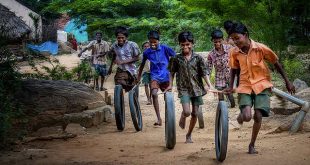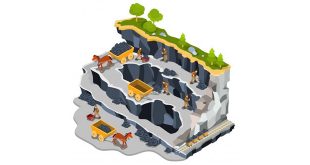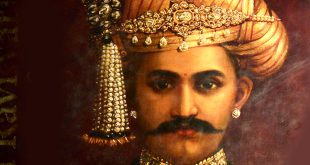Question: Mention the importance of the following dates: (i) 1774 (ii) 1789 (iii) 1791 (iv) 1792-93 Answer: The importance of the dates are: 1774: Louis XVI became the King of France 1789: Convocation of Estates General Third Estate formed the National Assembly, The Bastille was stormed 1791: A constitution was framed to limit …
Read More »Search Results for: America
NCERT 8th Class (CBSE) Social Science: Natural Resources – Natural Vegetation
Question: What is the Vanamahotsava? Answer: The social programme of planting trees, organised at community level is called Vanamahotsava. Question: How is a bird like vulture important for the ecosystem? Answer: A vulture feeds on dead livestock and so it cleanses the environment. Question: What is the distinguishing feature between evergreen …
Read More »NCERT 8th Class (CBSE) Social Science: Human Resources – Quiz
NCERT 8th Class (CBSE) Social Science: Human Resources – Quiz 12 Multiple Choice Questions related to NCERT 8th Class (CBSE) Social Science: Human Resources – Quiz: Average density population of the world is 45 persons per sq. km. and India is 364 persons per sq. km. Age-sex pyramid also known as …
Read More »NCERT 8th Class (CBSE) Social Science: Human Resources
Question: What is the present average density population of World and India? Answer: Average density population of the world is 45 persons per sq. km. and India is 364 persons per sq. km. Question: Name is least populous continent of the world. Answer: Antarctica is the least populated continent in …
Read More »NCERT 8th Class (CBSE) Social Science: Natural Resources – Land, Soil and Water – Quiz
NCERT 8th Class (CBSE) Social Science: Natural Resources – Land, Soil and Water – Quiz 21 Multiple Choice Questions related to NCERT 8th Class (CBSE) Social Science: Natural Resources-Land, Soil and Water – Quiz: The earth’s surface has about three-fourths water, so it is called “water planet”. Fresh water is …
Read More »NCERT 8th Class (CBSE) Social Science: Natural Resources – Land, Soil and Water
Question: What are the possible reasons behind the uneven distribution of population around the world? Answer: The reasons behind uneven population distribution are mainly the varied conditions of land and climate. Question: Give three common forms of land use. Answer: Three common land use forms are: As cropland Pasture Forests. …
Read More »NCERT 8th Class (CBSE) Social Science: Manufacturing Industries
Question: Define industry. Answer: Industry refers to an economic activity that is concerned with production of goods, extraction of minerals or provision of services. Question: Name three common methods of classifying industries. Answer: Industries are classified according to raw material used, size and ownership. Question: Expand the abbreviation AMUL. Where …
Read More »NCERT 8th Class (CBSE) Social Science: Agriculture
Question: What is the basic function of the three basic types of economic activities? Answer. The three types of economic activities are involved in the transformation from a plant to a finished product. Question: What are tertiary activities? Answer: Tertiary activities are those which provide support to primary and secondary …
Read More »NCERT 8th Class (CBSE) Social Science: Minerals and Power Resources
Question: Differentiate between a rock and an ore. Answer: A rock is an aggregate of one or more minerals. An ore is a rock from which minerals are mined. Question: Define quarrying. Answer: Quarrying is a process of extraction in which minerals lying near the surface are simply dug out. …
Read More »NCERT 8th Class (CBSE) Social Science: Changes In The Arts
Question: Describe in your own words one painting from this chapter which suggests that the British were more powerful than Indians. How does the artist depict this? Answer: The painting which depicts the discovery of the body of Tipu Sultan shows the British as more powerful than Indians. In this painting, …
Read More » Class Notes NCERT Solutions for CBSE Students
Class Notes NCERT Solutions for CBSE Students







